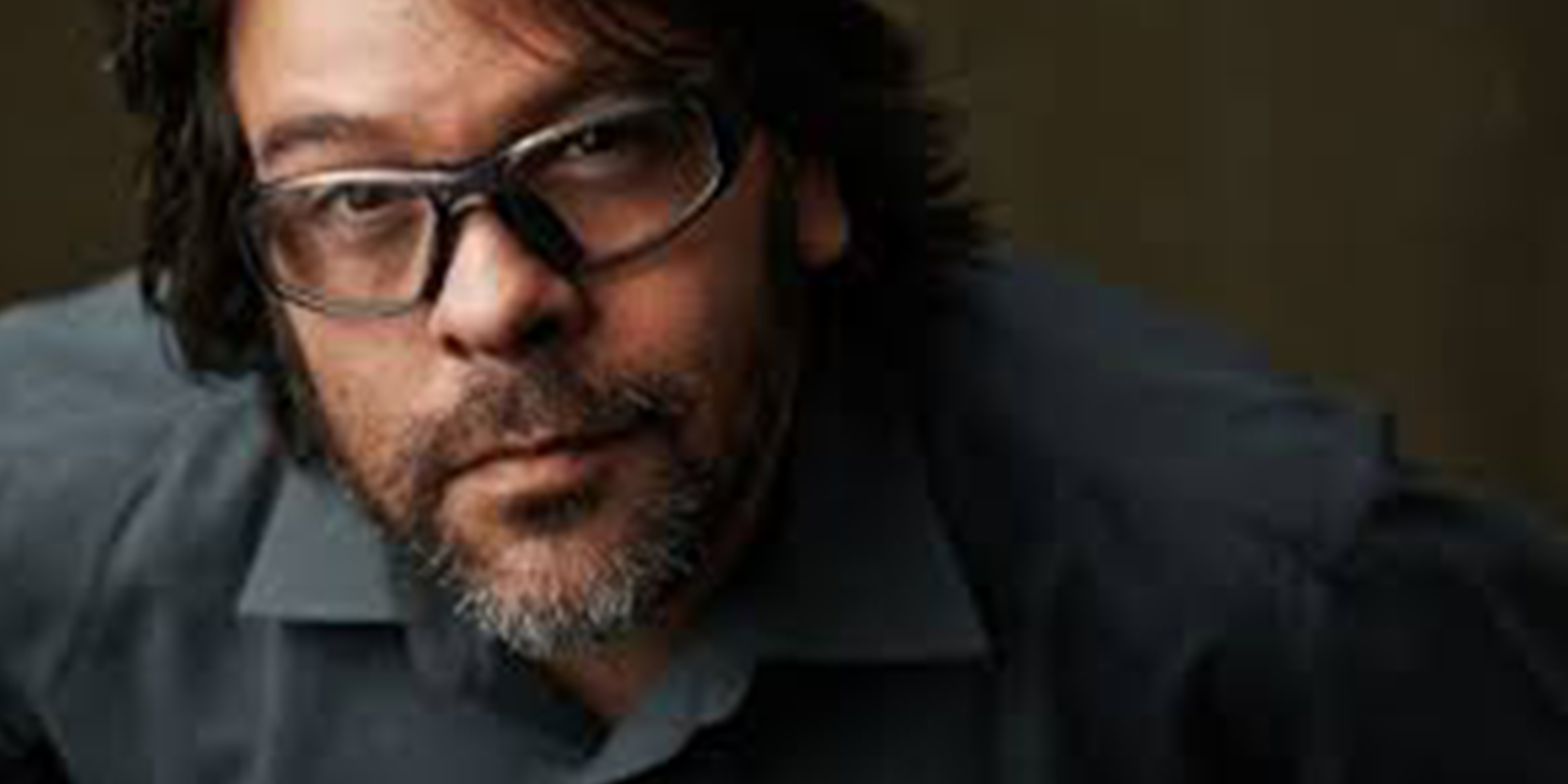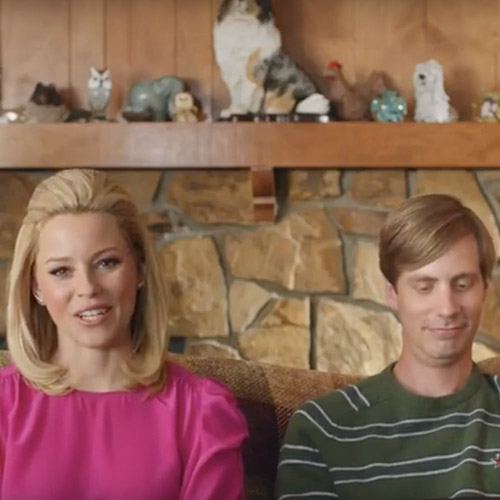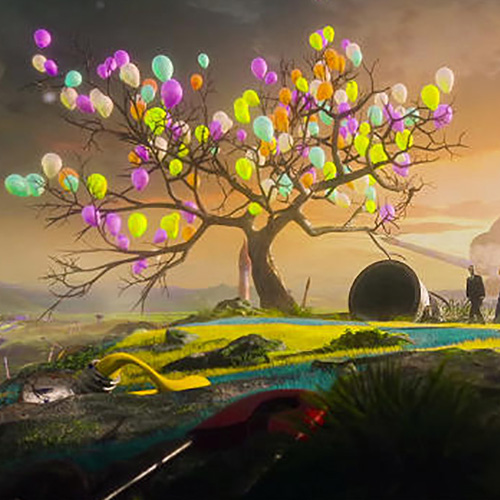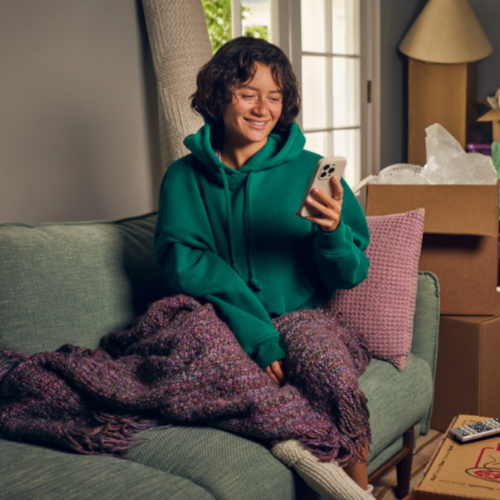The last eight years in PJ Pereira's career have played out like a wish fulfilment fantasy for every angst ridden creative person thinking of leaving a cushy job at a large agency to go indie, fed up with right-brained clients, seemingly immortal and immovable bosses and an agency system that just doesn't "get" digital.
In the time it takes many creative upstarts to "find themselves", this San Francisco-based shop, which began in 2008, has branched out to Sao Paulo and New York, and works for Coca-Cola, Dell, Intel and Skype among others.
Pick a creative bucket list cliche and Pereira's been there, done that and probably got a client to plump for commemorative t-shirts. After a storied career in Brazil including winning the country's first Cyber Lions Grand Prix in 2000 for the Sao Paulo Eye Bank while at AgenciaClick, Pereira was hired by AKQA in 2005. It was during this stint that he created his first significant longform film, a mockumentary for Red Bull called Unflinching Triumph, about the US champion of staredowns (a 'sport' where people quite literally stare at each other and whoever breaks eye contact first, loses). "I realised this was the most fun you could have and wanted more," he says.
Pereira & O'Dell has mastered the longform miniseries with films for Skype and Intel that have been seen, shared and even participated in by people. Its campaigns have worked well for the brands and at ad award shows: three Cannes Lions Grand Prix in 2013 and a daytime Emmy for Intel and Toshiba's 'The Beauty Inside'.
For all that, Pereira himself considers it a fairly typical agency since he's "too busy to try and change the model." But how does that explain its famous episodic films, which have been heartwarming, funny, tearjerkers and everything in between? If there's a signature style it doesn't seem obvious. According to Pereira though, a formula does exist. The agency is built around keeping a question alive: what would advertising be if it was invented today? He explains, "If we look at the tools we have, the things we know to do, the problems clients have and the lives that people live, and forget how advertising has evolved, how would we do it?"
Marketers can no longer rely on buying the consumer's time. They need to make themselves interesting enough to catch her attention in the first place. Says Pereira, "Once that happens, restrictions like the 30 second format are no longer significant. You just tell the best story you have to tell."
An interesting philosophy but how does Pereira get people — especially those who've worked in a more traditional manner — to buy in? By preferring to work with freshers just out of school, for one. The team who created the highly celebrated Beauty Inside had no prior ad experience. Pereira says, "Bringing people from other agencies that I respect usually is a problem. They always come with an answer on how advertising should be if it was invented today. And although they may be right, it's the question that I care about the most. I need people that want to explore. Young minds, fresh out of school tend to be on that mindset or are more easily turned into it." The briefings at Pereira & O'Dell are more about problems to be solved rather than media plans to be filled with creative executions. He says, "The ideas will tell you where they want to live: in a theatre, TV, the streets, newspapers... you just have to let them talk."
At a more functional level, the agency views disciplines like copywriting, filmmaking or digital marketing as techniques. Some of its most famous work combines digital and social with TV and PR. According to Pereira, "To me it's like a big Lego set. You can follow the instructions or build your own thing."
Let this not fool you into believing it's an easy sell. While a good track record helps — Intel is on its fourth year now — it's a struggle every single time. Pereira admits, "Ultimately, it's our job as specialists to show the big win behind each risk. But risk for the sake of risk is stupidity." The secret sauce that's driving the success has more to do with plain old persistence than philosophy. "Most of what we do is "normal"", Pereira says candidly. He adds, "We just try every single time regardless of the fact we are likely to hear a 'no.' But because we try more often, and don't give up, we get a couple of hits. It's a numbers game, you know? It also helps if you don't establish an adversarial relationship with clients. Empathy for their real problems, ambitions and dreams is key to get an outrageous idea off the ground."
Strangely enough, while Pereira claims to not care too much for the "independent" tag, he works best in a setup where he calls the shots. "I just have too much trouble dealing with and submitting to power," he says. And if the people who work under him feel the same way, they are welcome to start their own agencies. However as Pereira points out, "To start a successful shop you need more than to not be able to deal with a boss."
If not in advertising Pereira would have been a writer.
He's just completed a trilogy called The Gods of Both Worlds that switches between Ancient Africa and early 21st century Brazil. Pereira describes it as a narrative full of "magic, sex, food and violence." He recalls, "I grew up in a typical middle class family in Rio and for us, everything related to African religions was coming directly from the devil himself. Then I grew up and got in touch with the myths, the philosophy, and fell in love with the way they think, about how nonjudgmental those gods are, how they don't consider the idea of sins, like Christians do, but clearly understand the idea of consequences. Ultimately it made me more confident with my own spirituality." He hopes to get the book published in India considering it's the country that attracts the maximum traffic to the English version of the trailer to his book.
Oh also, he spent his formative years in a cult!
The leader inspired a character in the trilogy who may well be the subject of Pereira's next literary venture. He says, "Brazil was filled with new age religions in the 60s, 70s and 80s. I grew up in one of those. It had a very abusive leader, but also exposed me to religious texts from many different sources, from Hare Krishna to Buddhism, Christian Science, French Kardecism, Brazilian Umbanda... living through that taught me there are lots of interesting perspectives out in the world, but all that content isn't anything if you have a bad, destructive character. Sounds obvious, but it's different to know it at a logical level and deep in your gut, cause you saw it, lived it, suffered and learned from it."
HALL OF FAME Campaign: The Beauty Inside
Brands: Intel and Toshiba
Significant awards: 3 Grand Prix at Cannes Lions 2013 (film, branded content and entertainment and cyber), Daytime Emmy (outstanding new approach to daytime program or series)
The story of Alex, a man who wakes up in a different body which could be male, female, young or old every single day. While his external appearance changes he remains the same inside and his life gets more complicated when he falls in love. Product integration was via a nifty device: a computer that Alex carries around in which he keeps a record of his various transformations. Starring Topher Grace and Mary Elizabeth Winstead, the audience could apply online to play Alex or submit webcam entries to further flesh out the narrative: the best of which were aired with each instalment of the web series. It landed 70 million views and an Emmy: an award that's usually handed out not to advertising but the programming that it disrupts.
Campaign: “Stay Together Family Portraits
Brand: Skype
Significant awards: Gold at The One Show 2014 for Branded Entertainment; Silver at Cannes Lions 2014 (Cyber)
Three films about people separated from their family or friends staying in touch via Skype which culminates in a group photo over Skype. The campaign's blog invited people to send in their own stories resulting in a fourth film about the lasting friendship between a couple of girls in New Zealand and America, both of whom were born with only one arm.







